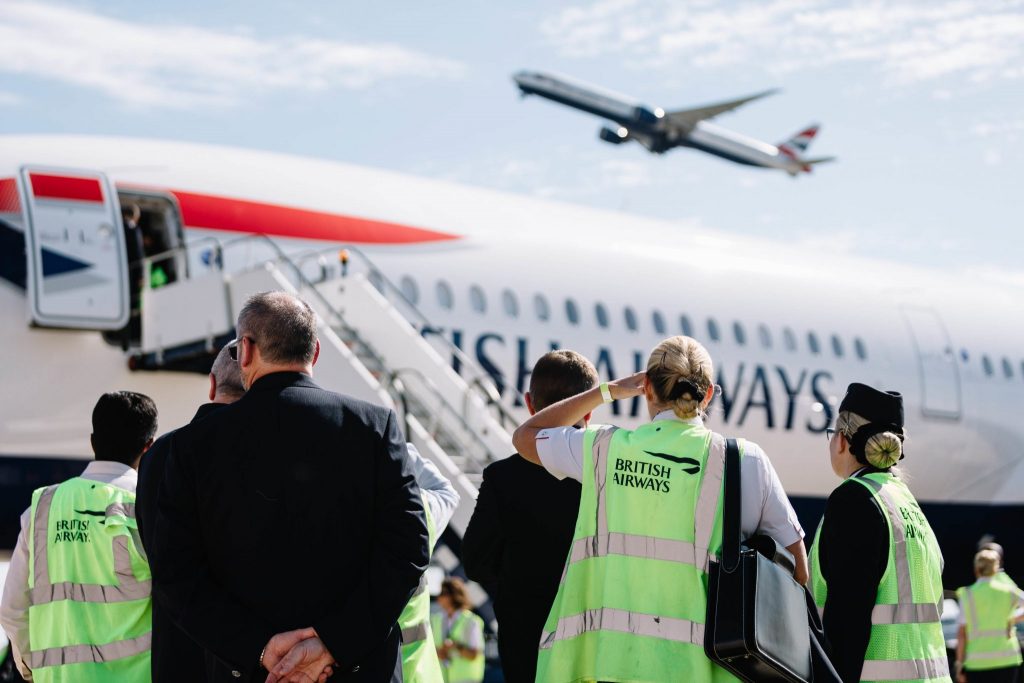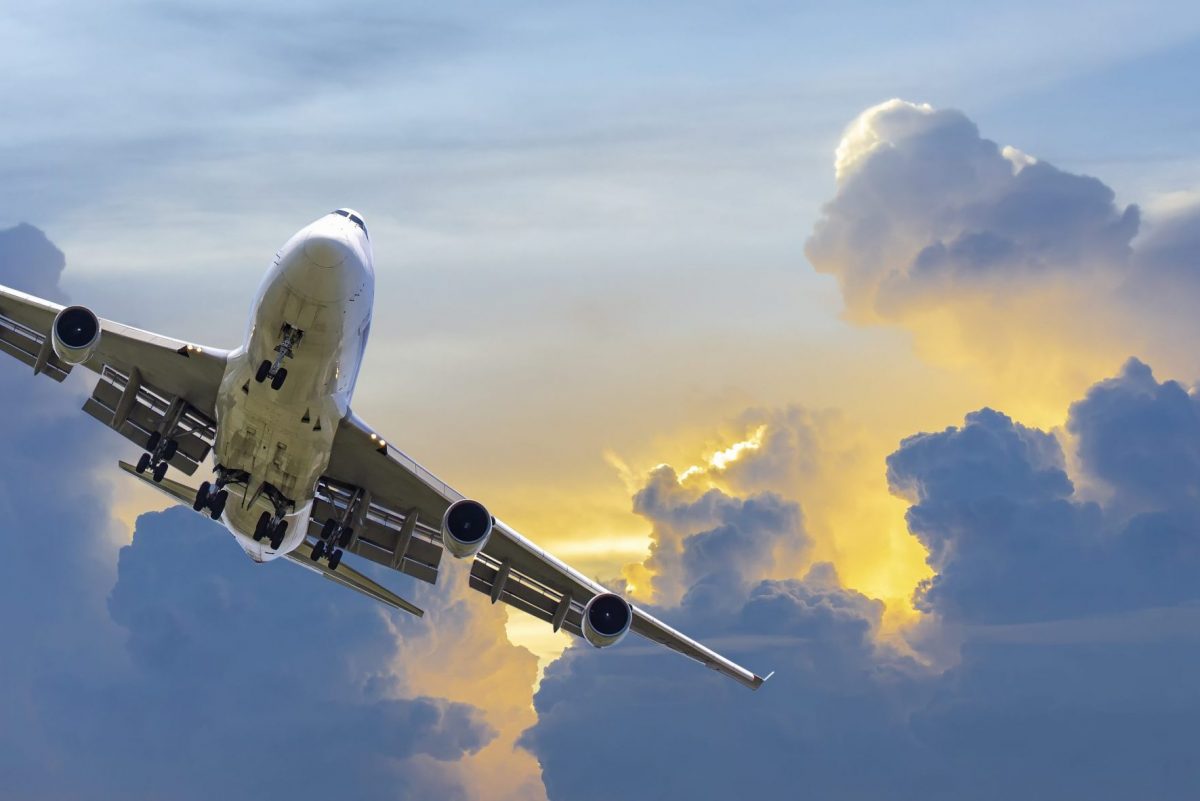Interview: Despegar CEO on the Evolution of Online Booking in Latin America

Skift Take
Editor’s Note: Skift is publishing a series of interviews with online travel CEOs talking about the Future of Travel Booking, and the evolving habits and device preferences of travel consumers. Check out all the interviews as they come out here.
Roberto Souviron, co-founder and CEO of Despegar, Latin America's largest online travel agency, is running a business that is transforming itself as online and mobile booking for travel products catches on in Latin America, supplementing Despegar's call center business, which is the company's mainstay.
Souviron believes that over the next decade online travel research will translate into a greater percentage of online travel bookings, ramping them up from the current 20% to perhaps half of all bookings.
Founded in 1999 and based in Argentina, Despegar's largest market is Brazil, and it supports nearly two dozen country sites in Latin America, the Caribbean and the U.S. The online travel agency's most recent funding round was $21 million from Sequoia Capital, according to Crunchbase.
Skift spoke with Souviron about the future of online booking in Latin American markets, the competition from homegrown rivals, as well as Booking.com and Expedia, and why Despegar is intent on personalizing its websites and launching new tools to accommodate and spur these trends.
An edited version of the interview follows:
Skift: How is travel booked in Argentina, Brazil and some of your other markets, and what do you see as some of the biggest trends?
Roberto Souviron: Here only about 20% of travel is booked online and we see that's been gaining share. We think it will continue for the next 5-10 years, and will grow into something between this and what it is in the U.S., perhaps 40% to 50%. So that is really the way we are trying to start: to be able to exceed expectations of the new people coming into the online buying habit.
Skift: Does Despegar own its call centers or how do you handle that?
Souviron: Yes, we do own call centers. They are a very significant part of our business. We started 15 years ago and although we started as an online travel agency, the call center was a significant part. And that's been slowly decreasing, but it is still a very significant part of our business.
Skift: Online booking is increasing. And are you giving customers an incentive to book online, are you pushing them online, or are you happy when they phone the call center instead?
Souviron: We are happy both ways and both are acceptable ways of selling travel so that's fine for us. We see a pattern with people for the first time that they do all their research online and some of them call perhaps when it is the first time they are doing their research with our company. But then they contact the call center. The telephone is a good place to attract first-time buyers to try out the company.
Skift: And do you prefer for the second trip with Despegar that these customers do everything online?
Souviron: We would rather have everything online. We think it is much more efficient. We constantly try to innovate and bring new things to our consumers, and the largest opportunities we are seeing on the website is knowing what our customers are searching for and what other things they have been doing, and offering those destinations. It is something we have been working on a lot.
Skift: Do you have any figures on how many people are searching on mobile or booking on mobile, or any mobile revenue numbers?
Souviron: Around 15% of total transactions are happening through mobile, including smartphones and tablets.
Skift: And are you seeing different behaviors on smartphone versus tablets?
Souviron: Yes, the tablets are more similar to PC user than the pattern of the smartphones, which is more like the HotelTonight experience. The booking window is much smaller on the smartphones than the tablets.
Skift: Are you seeing that users are starting their searches on mobile and switching to desktops? Are they switching back and forth?
Souviron: We have integrated profiles a couple of months ago so we still haven't seen too much data on that. But for what we have, yes, we see people coming back and forth.
Skift: For Despegar are apps bigger than your mobile website?
Souviron: They use both, but we try to push for the app downloads because in the end we think it is much faster and a better experience. Web browsing is a big part of total transactions, but we think in the future they will be going to the app.
Skift: Does most of your revenue come from flights or hotels? What's the relationship?
Souviron: It's more or less half and half. Half is air and half is something else. We have invested a lot into a hotel extranet and we say we have the largest network of hotels logging into our extranet, putting availability and pricing on the extranet and serving it to our users. So that is also something we have been working on.
Skift: How are payments handled? How do people pay for their travel?
Souviron: I would say very similar to other markets. It's mostly credit cards or debit cards and in some cases we have some other means of payment. The main difference is that here most people pay in installments. People are used to it here.
Skift: How do the installments work? If you want to pay for a flight is there a certain percentage that you pay up-front?
Souviron: No, what we do is we have a partner bank with whom they finance their purchase, and then, for example, you can pay in 12 installments.
Skift: Despegar also has an office in Miami, right?
Souviron: Yes, we do have an office there for the Hispanic market.
Skift: Is most of your business outbound travel? Do you sell a lot of inbound travel, as well?
Souviron: For the U.S. it is mostly people from the U.S. going to Latin America. Typically it is ethnic travel, people going back home.
Skift: What about in Brazil, your biggest market? Is it people flying within Latin America and outbound, as well?
Souviron: Yes, domestic travel is huge in Brazil and also regional and international travel is huge. We are a very big player and the purchase pattern is not different than the total market.
Skift: So your headquarters is in Argentina but Brazil is your largest market? How did that happen?
Souviron: Yes, that's right. Just like Booking.com is headquartered in Holland and I'm sure that Holland is not their largest market. Quite similar to the European market where you have the whole market, but each country has its differences. Since the first day, we opened offices in most of the largest countries in Latin America and started operating, and just because the Brazilian market is the largest economy that is also reflected in our volumes.
Skift: Do you see any differences in booking trends in Brazil versus Argentina or other countries in the region?
Souviron: Not really. Perhaps in the Brazilian market since it is larger, the domestic share is larger than in Argentina, where almost 60% of the travel is outbound.
Skift: You talked about personalization and that you are working on that. So many companies talk about personalization but it seems like it is at a very early stage. Can you give any examples of what you are focusing on and how it works?
Souviron: Basically what we've been doing is trying to understand the patterns of users of our websites for each customer and based on that we have several algorithms, and we are trying them out to maximize the conversion rate. And the website suggests some destinations based on these algorithms and really I think that just like with everyone else, it is just starting. But it is very promising and we think it has a lot of potential.
Skift: Is it about recommending certain destinations or a particular kind of hotel?
Souviron: Exactly. In the end, we will make recommendations and we hope what you will find will be ideal for you. And to do that we need to have the intelligence of what other people have bought, how they reviewed it, how they found it out. It is a matter of finding a way to use the data right. We have to find out how the destination is doing, how the service provider is doing. So we have a lot of information available to really digest.
We have also been doing a great job in shifting away from air. A couple of years ago air was the most important part of our revenue and today it is half of it. We think this trend will continue and personalization allows us to cross-sell much better. So that's why we think it is so important.
Skift: Are ancillary services big in Latin America among the airlines and are you doing anything about them in the booking path?
Souviron: I would say they are not important here. I would say almost nonexistent.
Skift: Lucky you. Actually, not lucky you, but your customers are lucky not to have have to deal with bag fees etc.
Souviron: I'm not really well-acquainted with the situation outside, but here it is not very important. I think the GDS (global distribution system) is a strong supporter of that. Although we have a lot of direct-connects, a good part is through the GDS.
Skift: How would you describe your competitive position in Brazil and in some of your other markets? Who are your largest competitors?
Souviron: We have a huge market share. Of the total online travel agency market we have around a 60% market share.
Skift: Is that in Brazil or where?
Souviron: Overall in Latin America, but Brazil will reflect that also. The thing is there aren't many players. For air there are a couple, but I would say their volume is 10 times less than us. So we have 10 times more volume. In hotels, it is more competitive. We have competition from Booking.com and Expedia. There are market share is lower. On packages and dynamic packages we have very good positioning and for cars it is starting to become very good. We have a good platform just like we do for hotels. So we are by far the dominant player.
Skift: Where does Hotel Urbano fit it?
Souviron: It is not clear where it fits in. They started more as competition for Groupon so it was more a coupon that they were selling. Now they've been trying to gain some volume. They've been shifting into a regular OTA business. Now they are trying to sell hotels with price and availability.
Skift: You mentioned packages. Are tour operator packages really big in your markets? How do they fit into the booking picture?
Souviron: We do sell both. The tour operator packages are the already assembled packages and then there are the packages that the customers can put together themselves and get the benefits of the tour operator rates. We are by far the largest player in this field. I would say the packages that people are putting together for themselves are more substantial than the assembled packages.
Skift: I have to ask you about the tax problems that Despegar had awhile ago. Were they settled?
Souviron: I think it is important to clarify that the Argentine fiscal authority hasn't formally notified us of any pending claims. We have declared and paid taxes on time and have no debts with the Argentine fiscal authority. They are working to try to understand our business model and we are helping them on that just like we had done in the past. We are confident that if there is any claim in the future we will be able to solve it.
Skift: Is there anything you'd like to add about trends pertaining to the future of travel bookings?
Souviron: I think the trend we are seeing is that 40% to 50% of bookings will migrate to the online channel. And really since we so much leadership we are going to bring really useful tools not only to buy, but also for customers who want to change a flight or a hotel reservation so they can do it very easily and quickly. That is our main goal: to continue to provide tools to keep customers satisfied. And that way they not only buy for the first time, but that they buy for the future.






